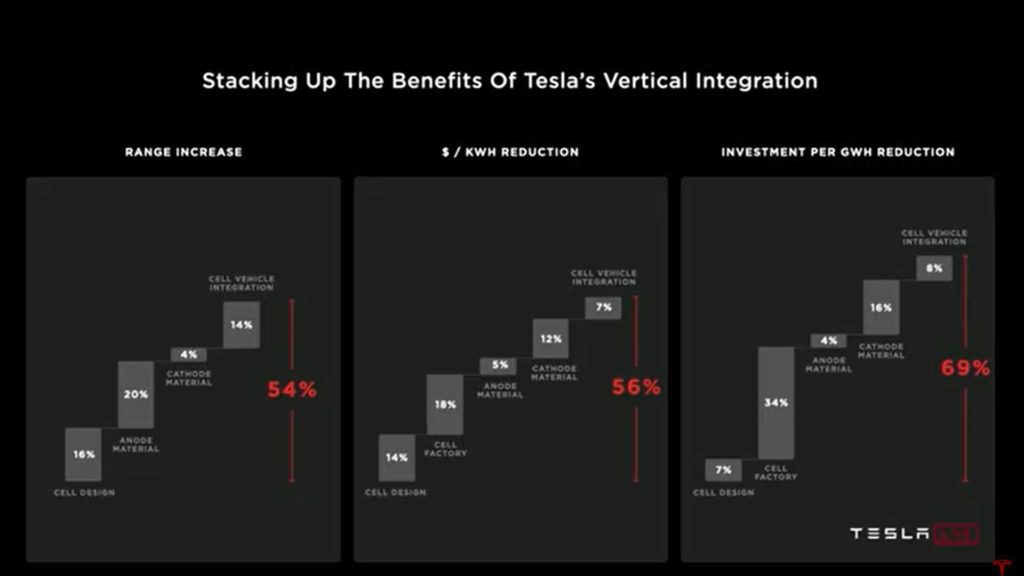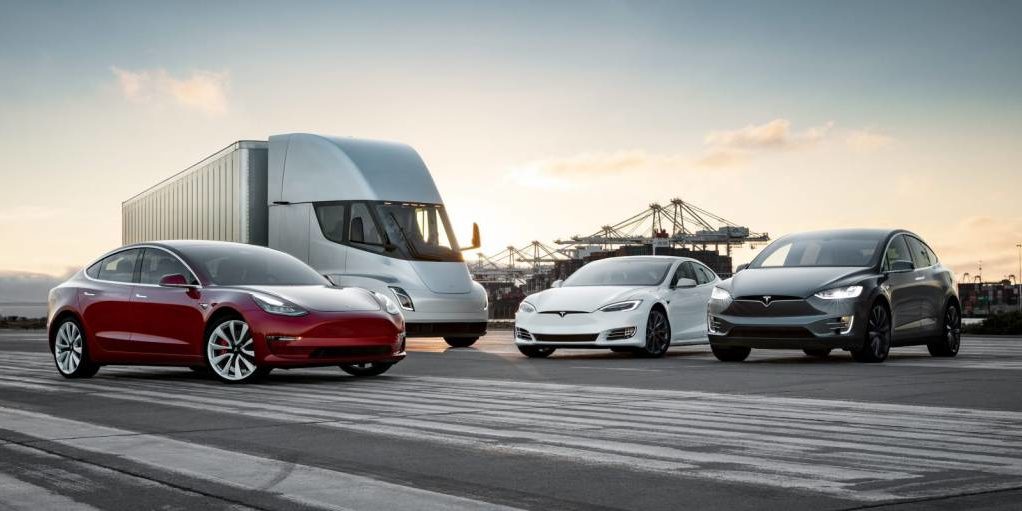During its Battery Day, Tesla presented numerous novelties, most of them focused on increasing the range of its vehicles and reducing the cost of its batteries. Adding up the different innovations introduced, the brand announced a total autonomy improvement of 54% and a reduction in the price of kWh of 56%.
The increased autonomy will be achieved thanks to various factors. According to the company, the new 4680 tabless cells’ design will improve range by 16%, possibly thanks to the increased usable volume of the cells, which are significantly larger than the 2170 currently used in the Model 3 and Model Y.

On the other hand, the use of “Structural Batteries” will lead to an extra increase of 14%. This solution will consist of integrating the pack into the vehicle’s structure, with the central frame (built from a single cast aluminum part) being in charge of housing the cells. In the beginning, this will also have an impact on better use of space, as well as lower weight.
Another interesting point will be the use of raw metallurgical silicon in the anodes of the batteries, which will allow another 20% increase and a 5% cost reduction. The biggest problem with using this material in lithium batteries is that without proper treatments, which are usually very expensive, it tends to degrade quickly. However, Tesla has managed to fix this problem.
Finally, the firm also announced that the cathode materials’ changes would allow for a final 4% increase. As can be seen, much of this 54% increase will be achieved simply through space and weight improvements, with 24% corresponding “only” to the use of new electrode materials.
Currently, the Tesla Model S Long Range Plus reaches a 402 miles EPA range, so a hypothetical second generation that incorporates all the improvements previously described on paper could reach 618 miles EPA, without taking into account other types of advances (engine efficiency, aerodynamics, etc.).

